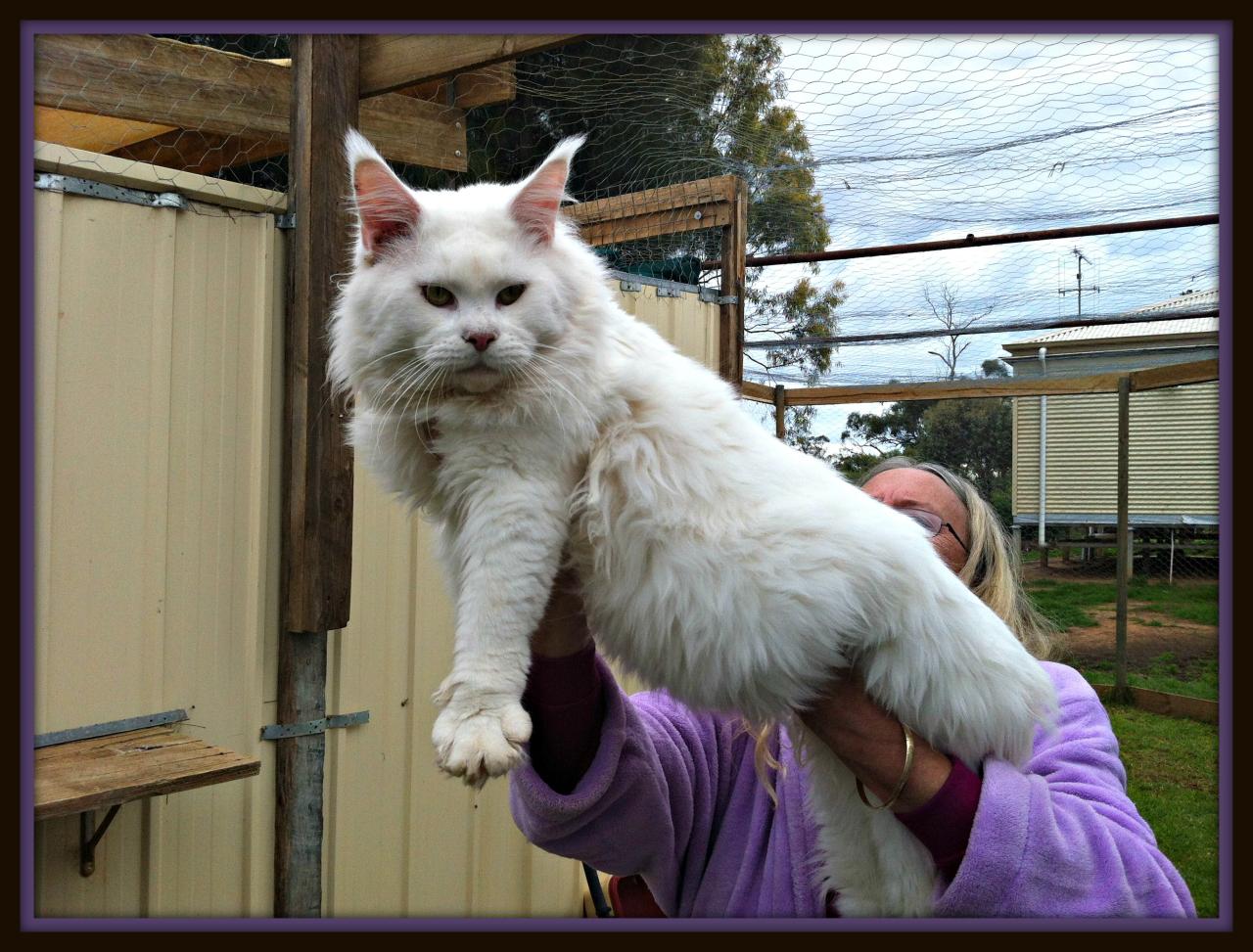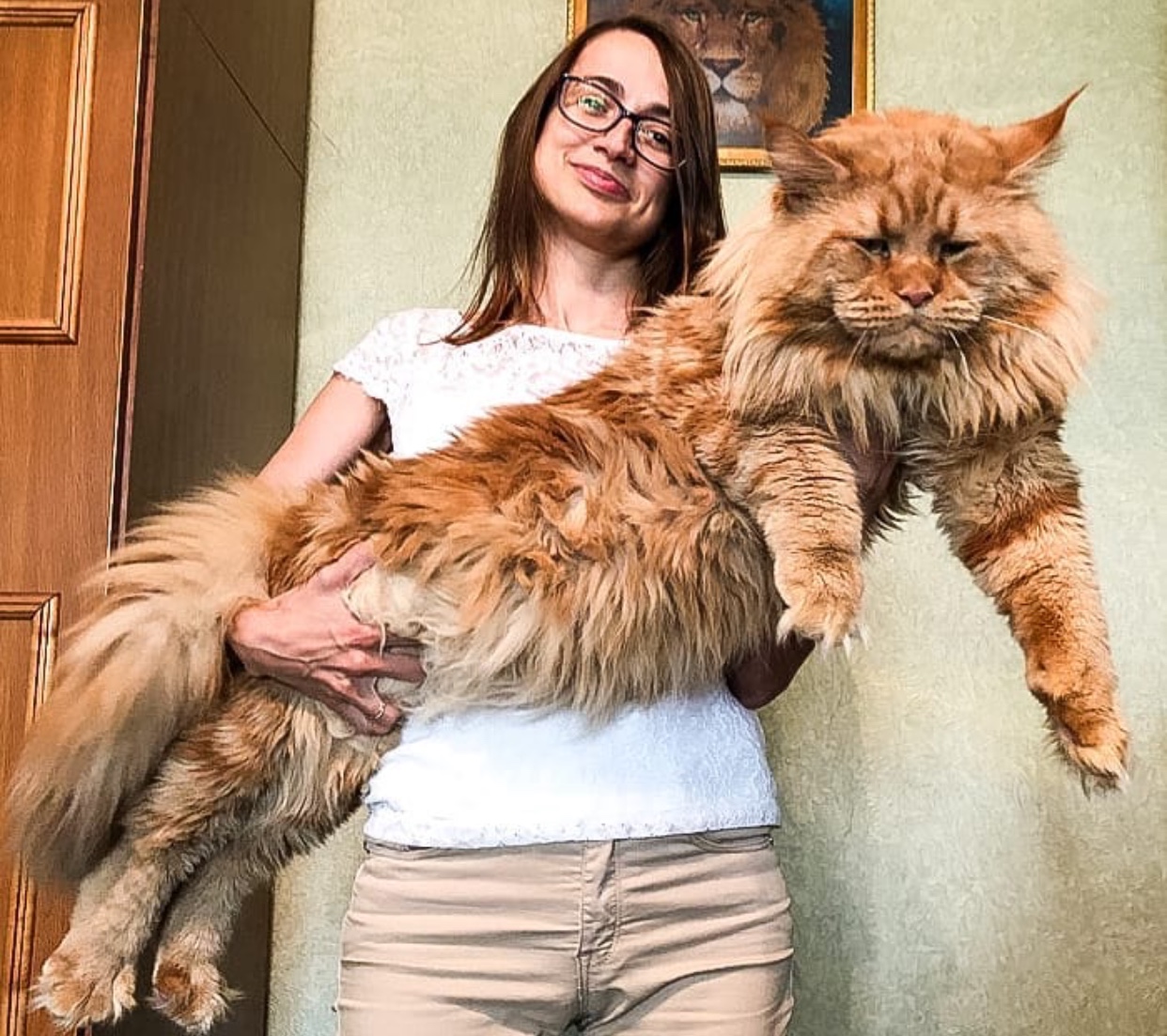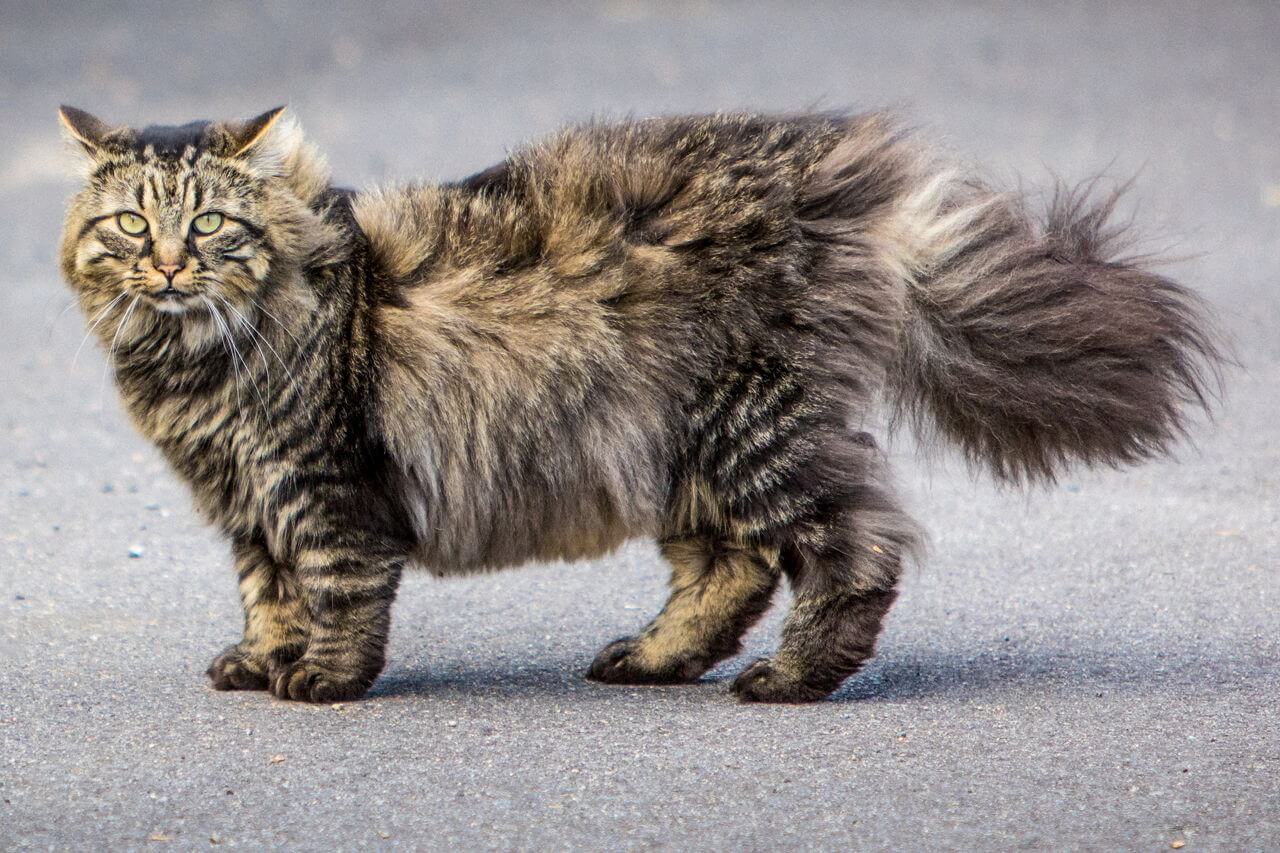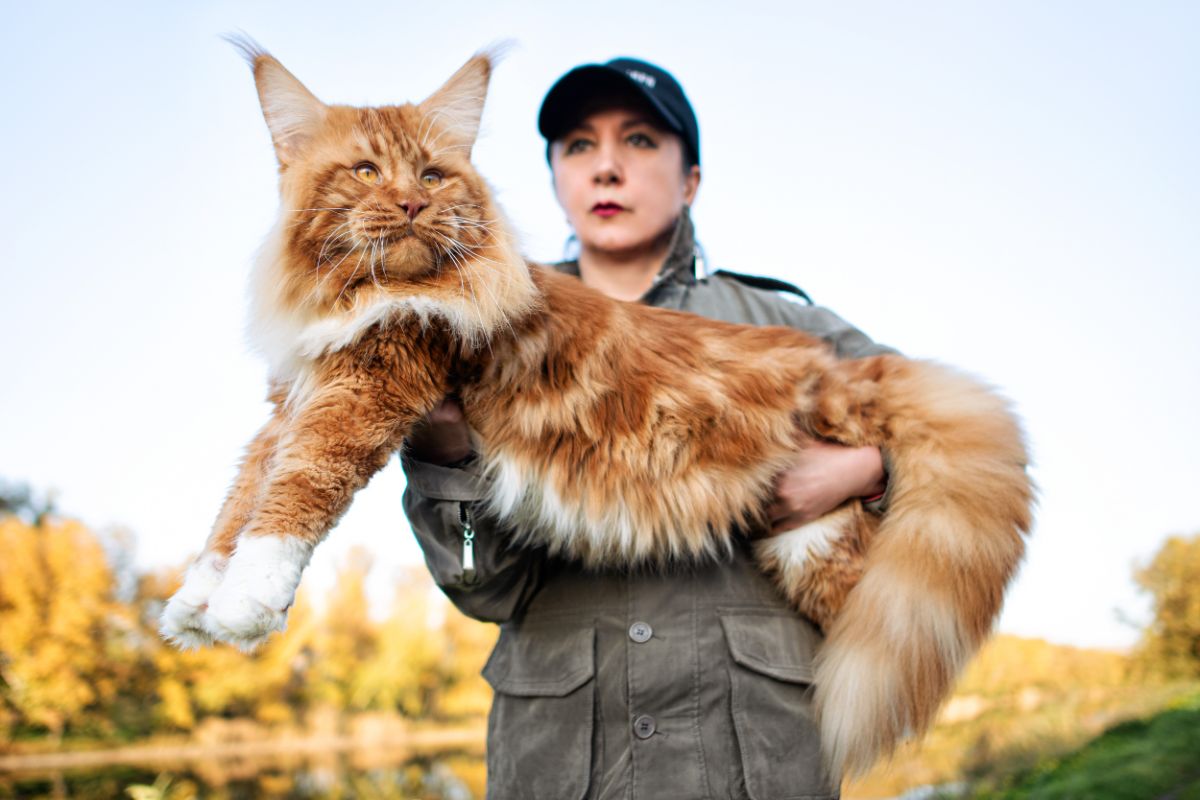Large Maine Coon cat breeders are the guardians of a feline legacy, nurturing the gentle giants that have captured hearts for centuries. Their dedication to preserving the breed’s distinctive traits and exceptional health shines through in every aspect of their practices.
From their sprawling physiques to their affectionate personalities, large Maine Coon cats are a testament to the power of selective breeding. As we delve into the world of these majestic creatures, we’ll explore the intricacies of their care, the challenges they face, and the joy they bring to their devoted owners.
Breeder Profiles

When searching for reputable breeders of large Maine Coon cats, it is essential to conduct thorough research to ensure the breeder aligns with your values and provides exceptional care for their cats.
Below are profiles of highly respected breeders known for their expertise, ethical breeding practices, and unwavering commitment to the well-being of their cats.
Breeder Name, Large maine coon cat breeders
- Experience:With over years of experience in breeding Maine Coons, Breeder Name possesses an in-depth understanding of the breed’s unique characteristics and health requirements.
- Breeding Practices:Breeder Name adheres to the highest ethical standards in their breeding program. They meticulously select breeding pairs based on genetic compatibility, health, and temperament to ensure the kittens inherit the best traits of the breed.
- Cat Care Standards:The cattery is meticulously maintained to provide a pristine and nurturing environment for the cats. Regular veterinary check-ups, vaccinations, and a balanced diet ensure the cats’ optimal health and well-being.
Breeder Name, Large maine coon cat breeders
- Experience:Having dedicated years to breeding Maine Coons, Breeder Name has established a reputation for producing cats with exceptional temperaments and adherence to the breed standard.
- Breeding Practices:Breeder Name employs a selective breeding approach, prioritizing the health and longevity of their cats. They conduct extensive health screenings and genetic testing to minimize the risk of inheritable diseases.
- Cat Care Standards:The cats are raised in a spacious and stimulating environment, complete with ample play areas, scratching posts, and interactive toys. Their diet consists of high-quality food and supplements to support their growth and development.
Breed Characteristics
Large Maine Coon cats are renowned for their distinctive physical and personality traits. Their massive size, luxurious coat, and gentle nature make them a beloved breed among cat enthusiasts.
These majestic felines are known for their impressive size, often weighing between 13 and 18 pounds. Their bodies are muscular and robust, with broad chests and strong legs. The Maine Coon’s head is large and wedge-shaped, featuring prominent cheekbones and expressive eyes that range from green to gold.
Coat
One of the most striking features of the Maine Coon is its thick, shaggy coat. It is composed of three layers: a dense undercoat, a water-resistant middle layer, and a long, flowing outer coat. The fur is typically medium to long in length and comes in a wide variety of colors and patterns, including brown tabby, black, white, and calico.
Temperament
Maine Coons are known for their gentle and affectionate nature. They are highly social cats that thrive on human interaction. Their calm and playful demeanor makes them excellent companions for families with children or other pets. Maine Coons are also intelligent and curious, and they enjoy exploring their surroundings.
Overall Health
Maine Coons are generally healthy cats with an average lifespan of 12 to 15 years. However, they are prone to certain health conditions, such as hypertrophic cardiomyopathy (HCM) and polycystic kidney disease (PKD). Regular veterinary checkups and a healthy diet are essential for maintaining their well-being.
Health Considerations

As majestic as they appear, Maine Coon cats are not exempt from certain health issues that are common among their breed. Understanding these potential concerns and implementing preventative measures can contribute to their overall well-being and longevity.
Some of the health conditions that may affect large Maine Coon cats include:
- Hypertrophic cardiomyopathy (HCM): A condition characterized by thickening of the heart muscle, which can lead to heart failure.
- Polycystic kidney disease (PKD): A progressive condition that causes cysts to develop in the kidneys, potentially leading to kidney failure.
- Hip dysplasia: A developmental abnormality of the hip joint, which can cause pain, lameness, and mobility issues.
- Dental disease: Maine Coons are prone to dental problems, including gingivitis and periodontitis, due to their large teeth and narrow jaw.
Preventative Care and Early Detection
Regular veterinary check-ups, vaccinations, and a well-balanced diet are crucial for maintaining the health of large Maine Coon cats. Additionally, the following measures can aid in early detection and prevention of health issues:
- Annual heart screenings to monitor for HCM.
- Regular blood tests to assess kidney function and detect PKD.
- Hip X-rays to diagnose hip dysplasia in early stages.
- Regular dental check-ups and professional cleanings to prevent dental disease.
By implementing these preventative measures and seeking veterinary attention promptly when any signs of illness are noticed, owners can help ensure the long-term health and well-being of their beloved large Maine Coon cats.
Grooming and Care
Maine Coons have a long, thick double coat that requires regular grooming to keep it clean, free of mats, and looking its best. They also need occasional baths and nail trims.
Brushing your Maine Coon at least twice a week will help to remove loose hair, dirt, and debris. Use a slicker brush or a metal comb to gently remove mats and tangles. Start at the head and work your way back, being careful not to pull on the hair.
If you find a mat, use a detangling spray or conditioner to help loosen it before trying to brush it out.
Bathing
Maine Coons do not need to be bathed often, but they may need a bath if they get dirty or matted. When bathing your Maine Coon, use a gentle shampoo and conditioner designed for cats. Wet your cat’s fur thoroughly, then apply the shampoo and work it into a lather.
Rinse your cat’s fur thoroughly and then apply the conditioner. Leave the conditioner in for a few minutes, then rinse it out thoroughly.
Nail Trimming
Maine Coons’ nails grow quickly, so they need to be trimmed regularly. Use a sharp pair of nail clippers and trim the nails to a point where they are just below the quick. Be careful not to cut the quick, as this will cause your cat pain.
Nutrition and Diet
Maine Coons, with their massive size and distinct characteristics, require a diet specifically tailored to meet their unique nutritional needs. A well-balanced diet is crucial for maintaining their health, vitality, and overall well-being throughout their lifespan.
The optimal diet for Maine Coons should be high in protein, moderate in fat, and low in carbohydrates. Protein is essential for building and repairing tissues, while fat provides energy and supports healthy skin and coat. Carbohydrates, on the other hand, should be limited to provide sustained energy without causing weight gain or digestive issues.
Kittenhood
Kittens require a diet rich in protein and calories to support their rapid growth and development. High-quality kitten food specifically formulated for large breeds is recommended during this stage.
Adulthood
Adult Maine Coons should be fed a diet that maintains their weight and energy levels. A combination of wet and dry food is often preferred, as wet food provides moisture and hydration while dry food helps keep teeth clean.
Senior Years
As Maine Coons enter their senior years, their dietary needs may change. Senior-specific food formulas are designed to be easier to digest and provide essential nutrients for aging cats.
Specific Health Conditions
Maine Coons with specific health conditions may require specialized diets. For instance, cats with urinary tract issues may benefit from a diet low in magnesium and phosphorus, while those with allergies may need a limited-ingredient diet.
Important Note:Always consult with a veterinarian before making any significant changes to your cat’s diet, especially if they have underlying health conditions.
Training and Socialization
Large Maine Coon cats are intelligent and eager to please, making them relatively easy to train. Training and socialization are essential for these cats to ensure they become well-rounded and well-behaved members of your family.
Basic Commands
Start training your Maine Coon kitten with basic commands such as “sit,” “stay,” and “come.” Use positive reinforcement, such as treats or praise, to reward your cat for following commands. Keep training sessions short and fun, and avoid punishing your cat if they don’t understand right away.
Litter Box Training
Most Maine Coon kittens will naturally use a litter box, but some may need a little guidance. Place the litter box in a quiet, easily accessible location. Show your kitten where the litter box is and encourage them to use it by placing them in the box after meals or naps.
Introducing New Pets
If you’re bringing a new pet into your home, it’s important to introduce them to your Maine Coon cat gradually. Keep the new pet in a separate room at first and allow your cat to get used to their scent.
Gradually increase the amount of time the pets spend together, and supervise their interactions closely.
Cat Shows and Competitions
Maine Coon cat shows and competitions are prestigious events where breeders and enthusiasts showcase their finest felines. These events provide a platform for breeders to exhibit their breeding programs and for cats to compete for recognition and titles.
Judging criteria for Maine Coon cat shows vary depending on the specific organization or club hosting the event. However, general criteria typically include:
- Physical Appearance:Overall size, coat quality, body proportions, and eye color
- Temperament:Friendliness, poise, and overall demeanor
- Health and Condition:General health, cleanliness, and overall well-being
- Grooming and Presentation:Proper grooming, coat condition, and overall presentation
Preparing for a Maine Coon cat show requires meticulous care and attention to detail. Breeders typically begin the preparation process months in advance, ensuring their cats are in optimal health and condition. This includes regular grooming, a balanced diet, and socialization to familiarize the cats with handling and show environments.
Ethical Breeding Practices
Ethical breeding practices are of paramount importance in preserving the health and well-being of large Maine Coon cats. Breeders have a responsibility to prioritize the health of their cats and maintain the breed’s genetic diversity.
Genetic testing and health screenings are crucial for identifying and eliminating genetic disorders that can impact the health of Maine Coons. Responsible breeders should test their breeding stock for conditions such as hypertrophic cardiomyopathy (HCM), polycystic kidney disease (PKD), and hip dysplasia to ensure that only healthy individuals are used for breeding.
Responsible Breeding Practices
- Breeding for Health:Prioritizing the health and genetic diversity of Maine Coons through selective breeding, ensuring the continuation of a healthy and robust breed.
- Genetic Testing:Employing genetic testing to identify and eliminate genetic disorders, preventing the transmission of inherited health conditions.
- Health Screenings:Conducting regular health screenings to detect and address potential health issues early on, ensuring the well-being of breeding cats.
- Responsible Placement:Placing kittens in suitable homes that can provide the necessary care and environment for their optimal well-being.
Historical Background

The Maine Coon is a majestic feline breed with a rich and captivating history. Its origins can be traced back to the rugged shores of Maine, where it emerged as a natural adaptation to the harsh climate and rugged terrain.
Anecdotes and stories abound about these remarkable cats. One such tale speaks of Captain Charles Coon, a seafaring man who brought a pair of long-haired cats aboard his ship in the 1800s. These cats are said to have mated with local shorthaired cats, giving rise to the distinctive characteristics of the Maine Coon breed.
Notable Large Maine Coon Cats
Throughout history, several large Maine Coon cats have captured the hearts of cat enthusiasts and the public alike. Here are a few notable examples:
- Stewie: A Maine Coon who holds the Guinness World Record for being the longest domestic cat, measuring an astonishing 48.5 inches (123 cm) in length.
- Omar: Another record-breaking Maine Coon, Omar weighed in at a hefty 38.5 pounds (17.5 kg), making him the heaviest cat ever recorded.
- Leo: A gentle giant who stole the show at cat shows, Leo was known for his massive size and playful personality.
Famous Large Maine Coon Cats

Throughout history, several large Maine Coon cats have gained fame for their exceptional size, beauty, and contributions to the breed.
These notable felines have played a significant role in shaping the standards and popularity of the Maine Coon breed.
Notable Maine Coons
- Stewie: Born in 1999, Stewie was a massive Maine Coon who held the Guinness World Record for the longest cat at 48.5 inches (123 cm) from nose to tail. Known for his gentle and affectionate nature, Stewie became a beloved celebrity in the cat community.
- Omar: Hailing from Australia, Omar was another record-breaking Maine Coon who weighed an impressive 39.6 pounds (18 kg). His extraordinary size and striking appearance made him a popular attraction at cat shows and events.
- Baribel: Baribel, a female Maine Coon from Italy, gained fame for her exceptional size and beautiful, long, flowing fur. She became a beloved companion and a symbol of the breed’s elegance and grace.
- Leo: Leo, a Maine Coon from the United States, was known for his massive size and striking blue eyes. His impressive appearance and gentle demeanor made him a favorite among cat enthusiasts and a regular participant in cat shows.
Case Studies
In the realm of Maine Coon breeding, numerous success stories exemplify the culmination of strategic breeding practices, meticulous health management, and optimal environmental conditions. These case studies provide valuable insights into the intricate art of preserving and enhancing the exceptional traits of this beloved feline breed.
One such case study involves the renowned breeder, Willow Creek Maine Coons, renowned for their consistent production of large, healthy Maine Coons with exceptional temperaments. Their breeding strategy emphasizes genetic diversity through the careful selection of breeding pairs, ensuring a wide gene pool and minimizing the risk of inherited disorders.
Health Management and Environmental Factors
Willow Creek Maine Coons places paramount importance on health management. Regular veterinary checkups, vaccinations, and genetic screening are essential components of their breeding program. They also maintain a pristine and spacious environment for their cats, with ample room for exercise and socialization.
This combination of proactive health care and optimal living conditions contributes significantly to the longevity and well-being of their cats.
Outcome Summary: Large Maine Coon Cat Breeders
The world of large Maine Coon cat breeders is a tapestry woven with passion, expertise, and unwavering love for these extraordinary felines. Their commitment to ethical practices and the well-being of their cats ensures the continuation of this beloved breed for generations to come.
